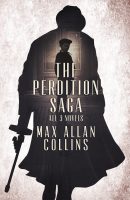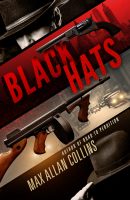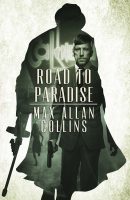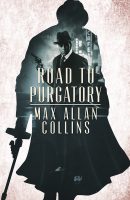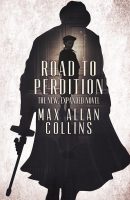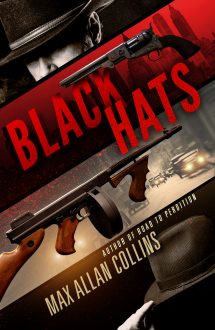
Black Hats by Max Allan Collins
Legendary lawman Wyatt Earp straps on his six-shooter to battle a new breed of bad man in a new land — rising gangster Al Capone and his machine-gun toting killers on the streets of New York City.
It’s the 1920s, the glittering jazz age, and the beginning of the blood-soaked prohibition-era. The wild west and the gunfight at the OK Corral are fading memories, even for aging lawman Wyatt Earp, who is toiling in Los Angeles as a private eye and a technical consultant on cowboy movies. When Doc Holliday’s son, who is running a glitzy nightclub in Manhattan, is targeted by the mob, Wyatt gladly leaves the tamed west for the wild east to defend him, pitting himself against a brutal, young gangster named Al Capone…
Books by Max Allan Collins
Reviews For Black Hats
Wyatt Earp versus Al Capone – a wild, exciting ride
Highly entertaining....(Collins) has outdone himself in this tale of bad guys, bullets, and booze set at the start of the Prohibition era
Wyatt Earp vs. Al Capone – it might seem an improbable situation, but it could have happened, and Collins makes it work in this wild blend of classic Western and gangster characters, all set in Prohibition-era New York City
A first-class novel...that makes on yearn for a sequel or six. Black Hats is never anything less than compelling
[Collins] once again shows himself a master at the historical thriller. In 1920, 70-year-old Wyatt Earp, who's working as a PI in Los Angeles, is hired by "Big Nosed Kate" Elder, the widow of his best friend, Doc Holliday. Kate wants Wyatt to go to New York and help her speakeasy-owning son, John (fathered by Doc as he was dying), who has fallen afoul of a local tough guy, the young Alphonse Capone. In New York, Wyatt teams with another old pal, Morning Telegraph sportswriter Bat Masterson. It's a fabulous setup, and Collins has all the skills and experience to bring these great characters leaping off the page. The bad guys may have organized gangs and tommy guns, but in the end these whippersnappers are no match for Wyatt's cunning and 10-inch-long-barreled .45. The exigencies of historical fact force Culhane into a tamer ending than some readers might like, but the sheer fun of riding along with the two old lawmen and their memories will run roughshod over any quibbles or complaints.
